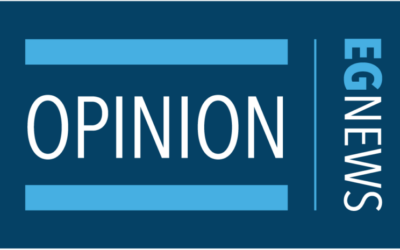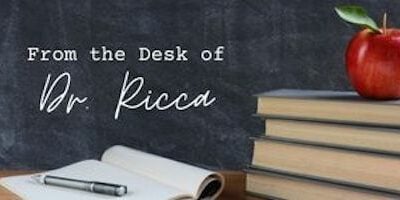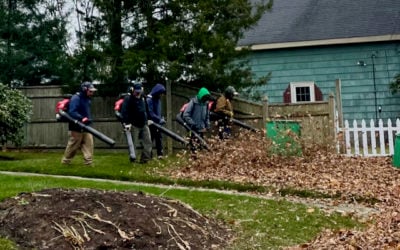Above: Photo by Volodymyr Hryshchenko / Unsplash
By Nicole Bucka
The decision to mask/not mask this fall in East Greenwich public schools will be made before the special election on October 5th (when I am a candidate for School Committee), but as a resident, I want leaders in our school district to be decisive as well as transparent regarding how they made a decision. I am asking for your vote this fall, so I want to share my thought process.
Regarding the question of whether or not to mask in our schools this September, I know what I bring to the table: educational expertise, federal/state policy level expertise, budget experience, but I am not a doctor or infectious disease expert. I, like our superintendent and School Committee members, do not have the role of making public health policy or recommendations, so when it comes to COVID, I listen to the medical experts and federal and state policy experts whose role it is to lay out guidance. The guidance changes frequently with new information and data, so it should be revisited regularly. My own doctor, in line with the American Academy of Pediatrics (AAP), in line with the Center for Disease Control (CDC), in line with the RI Department of Health (RIDoH) and RI Department of Education (RIDE) guidance, has recommended universal masking indoors for schools at this time. As a result, I feel confident this is the right course of action at this time.
Polarization is a red flag to me. I see our community, like many, struggling with opposing views: universal masking versus parent choice (regarding masking). Pro-mask people tell me they want assurances of safety for their children and family and those who are pro-parent choice want physical comfort and a return to normalcy. We are spending our time and energy disagreeing, when both have valid elements, rather than working together. Key stakeholders, like school staff and students, are also curiously missing from the dialogue. I worry that we are wasting valuable preparation time. Instead of arguing the opposites, couldn’t we look for solutions to get everyone’s needs met?
- Couldn’t we discuss how to give more options for comfort in the school building? Let’s ask students and staff what helped them feel more comfortable last year to consider scaling that up more broadly?
- Couldn’t we designate mask-free space(s) where students and staff who are vaccinated can willingly take their work when a break is needed while public areas are universally masked?
- Couldn’t we discuss expanding outdoor classrooms since guidance says we don’t need to mask outdoors?
These ideas all include engaging students and staff because they are the ones most directly impacted by a mask policy/procedure. As a School Committee member, I would push for surveys and focus groups of students and staff immediately to consider how to make the mask mandate more comfortable and more flexible within the safety restrictions for those directly impacted. Like all data, this should include a public report out of findings. This is how I feel decisions should be made.
This question, though, to mask or not to mask, is not as simple as it appears on the surface for a public school system. Now, I will apply what I do bring to the table – knowledge of education, federal/state law, and budget/fiscal experience. Boring, right? Yes, but necessary…
The Individuals with Disabilities Education Act (IDEA) is a law that says students with exceptionalities including Other Health Impairments (often medical) have a legal right to a “free and appropriate education” (FAPE) in the “least restrictive environment” (LRE). It is a law to prevent descrimination of the most vulnerable who historically were denied an education. There are children in this district with medical complexities that if we were to agree to parent choice in masking, this could prevent some children from being able to go to school or force them to be separated from others possibly denying them a free and appropriate education in the least restrictive environment. If vulnerable students had to remain at home, the district would still be responsible for FAPE, so even this would be on the taxpayers’ dime (unlike homeschooling). Both scenarios could put our district at risk for civil right complaints, state complaints, and due process. Bad for kids, bad for budgets…
I also wonder if the district wouldn’t be putting itself at risk for liability more broadly. What if there was an outbreak with staff and/or students after we decided to not follow national and state guidelines and recommendations? Could we be liable? What does our insurer say? I prefer the do-the-right-thing-by-all-students-and-staff reasoning, but I take my commitment to the taxpayers seriously, too. Making decisions without considering vulnerable populations and liability can get expensive – quickly.
Our children are watching how we handle this moment in time. Do they see people arguing or do they see people listening to one another? Do they see a community considering everyone, including the most vulnerable, or do they see that we make decisions made with only some having voice? Our district’s “Vision of a Graduate” says we want students to be knowledgeable, connected, reflective, and competent to solve future problems in a global world. Our children don’t listen to what we say as much as they watch what we do.
Nicole Bucka is running for EG School Committee.
If you would like to submit an op/ed or letter to the editor, contact [email protected]. Submission is not a guarantee of publication. Find out more HERE.






 Subscribe
Subscribe